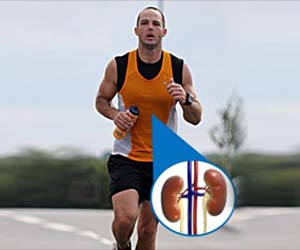Foods such as Kit Kats, Tiny Teddies, Smarties and Coco Pops, which are being advertised to kids as healthy products by private food companies, have reportedly been identified as unhealthy

It also found that 63 percent of food that appeared in television advertisements was considered unhealthy under Food Standards Australia New Zealand nutrient profiling. Fast foods including McDonald's Chicken N' Cheese burger and KFC's Mint Choc Krusher are also being advertised to children despite not being children's meals.
Researchers examined food advertisements that showed on television between 6am and 9pm over a two-week period to come to this conclusion. They discovered that companies which had signed up to an industry-regulated marketing code were still advertising food that would be considered unhealthy by government standards.
Interestingly, the companies that had not signed up to the voluntary code were more likely to promote healthy food than those that were signatories.
The findings have sparked calls for mandatory regulation in line with government standards. The Australian Communications Media Authority does not permit companies to advertise unhealthy food to children from 7am to 8.30am and 4pm to 8.30pm on Monday to Friday, or 7am to 8.30pm on weekends.
Study author Clare Hughes said this would be more effective in stopping high-sugar and fat foods being marketed to children rather than relying on food companies to comply with voluntary codes and self-regulation.
'Children are watching television at times when these initiatives don't apply.'
The analysis has been published in the industry journal Nutrition and Dietetics.
Source-Medindia
 MEDINDIA
MEDINDIA




 Email
Email










